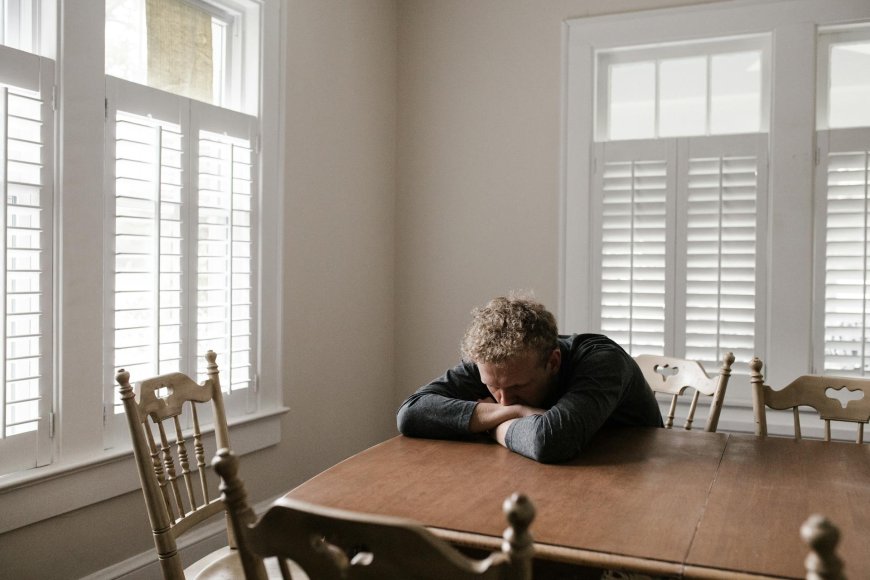What is Mental Health and Self-Care?
Mental health refers to our emotional, psychological, and social well-being. It affects how we think, feel, and act. Self-care involves taking steps to preserve or improve one’s own health, particularly during periods of stress.
Importance of Mental Health and Self-Care
Mental health is crucial at every stage of life, from childhood through adulthood. Good mental health helps individuals cope with stress, work productively, and contribute to their community. Self-care practices help manage stress and prevent burnout, promoting overall well-being.
Mental Health Statistics in the USA (up to 2024)
To understand the prevalence of mental health issues in the USA, it's useful to look at some statistics:
|
Year
|
Total Population (millions)
|
People with Mental Health Issues (millions)
|
Age Group
|
Common Reasons
|
|
2020
|
331
|
51.5
|
18-25
|
Stress, Anxiety, Depression
|
|
2021
|
332
|
53.0
|
26-35
|
Work Pressure, Financial Issues
|
|
2022
|
334
|
55.3
|
36-45
|
Health Problems, Work-Life Balance
|
|
2023
|
336
|
57.8
|
46-55
|
Aging, Chronic Diseases
|
|
2024
|
338
|
60.1
|
56+
|
Isolation, Loss of Loved Ones
|
Types of Mental Health Disorders

Understanding the types of mental health disorders is crucial for recognizing symptoms and seeking appropriate help. Some common types include:
-
Anxiety Disorders: Characterized by excessive fear or worry.
-
Mood Disorders: Includes depression and bipolar disorder, affecting mood regulation.
-
Schizophrenia and Psychotic Disorders: Affecting perception and thinking.
-
Eating Disorders: Such as anorexia nervosa, bulimia nervosa.
-
Personality Disorders: Patterns of behavior that differ significantly from societal expectations.
How to Recognize Mental Health Issues
Recognizing mental health issues early can lead to better outcomes. Signs to watch for include:
-
Persistent sadness or depression
-
Confused thinking or problems concentrating
-
Excessive fears or worries
-
Extreme mood changes
-
Withdrawal from friends and activities
-
Significant tiredness or low energy
-
Detachment from reality (delusions), paranoia, or hallucinations
-
Inability to cope with daily problems or stress
How to Care for Your Mental and Physical Health

Maintaining both mental and physical health is essential. Here are some tips:
Daily Self-Care Practices
-
Exercise Regularly: Physical activity boosts mental well-being.
-
Eat Healthy: Balanced diet contributes to better mood and energy levels.
-
Sleep Well: Quality sleep is crucial for mental health.
-
Stay Hydrated: Drinking enough water affects brain function.
-
Practice Mindfulness: Techniques like meditation reduce stress.
Mental Health and Self-Care Activities
-
Set Realistic Goals: Achieve them one step at a time.
-
Stay Connected: Social interactions enhance mental health.
-
Take Breaks: Avoid burnout by resting regularly.
-
Seek Help: Professional help is beneficial for serious issues.
-
Engage in Hobbies: Pursue activities you enjoy.
What to Do if You Develop a Mental Health Condition

If you suspect you have a mental health condition, it's important to:
-
Seek Professional Help: Contact a psychologist, psychiatrist, or counselor.
-
Talk to Someone You Trust: Sharing your feelings can provide relief.
-
Follow Treatment Plans: Medication or therapy as prescribed.
-
Join Support Groups: Find comfort in shared experiences.
-
Educate Yourself: Understanding your condition helps in managing it.
Preventing Mental Health Issues
Preventing mental health issues involves proactive self-care. Here are some strategies:
-
Stay Physically Active: Regular exercise reduces anxiety and depression.
-
Maintain Social Connections: Strong relationships provide support.
-
Manage Stress: Identify and mitigate sources of stress.
-
Establish a Routine: Consistency can provide stability.
-
Limit Alcohol and Avoid Drugs: Substance abuse exacerbates mental health issues.
FAQs
What is Mental Health?
Mental health encompasses emotional, psychological, and social well-being, affecting how we think, feel, and act.
Why is Self-Care Important?
Self-care helps manage stress, prevent burnout, and promote overall health and well-being.
What Should I Do if I Have a Mental Health Condition?
Seek professional help, talk to someone you trust, and follow treatment plans.
How Can I Prevent Mental Health Issues?
Stay active, maintain social connections, manage stress, establish routines, and avoid substance abuse.
